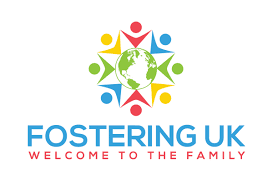Importance of Healthy Eating Habits for Foster Children and Youth
Food serves as a fuel primarily. Food is not only an essential and indispensable part of existence, but also a necessity because without it, our bodies would not have the sustenance they need to survive. Even though it is necessary for survival, food can provide so much more. We all have different opinions about food based on our own cultures and experiences, which makes food subjective. Most people see it as essential to maintaining relationships and family ties.
In order to ultimately enhance experiences and build new memories, meals might be organized to incorporate the exploration of new recipes as well as the serving of comfortable family favorites.
Many foster kids and teens who enter fostering agencies have low nutritional status. Individuals frequently experience food anxiety (such as binge eating or food hoarding), which has been related to early instances of abuse or neglect. Family meals should be eaten together, according to studies. Youngsters who routinely have meals with their families, including foster homes, are less likely to develop bad eating patterns, weight issues, or drug addictions.
Foster families can reflect on their days as a group while dining together, which strengthens the relationships between foster parents and the kids in their care. Many adults still consider the kitchen to be the center of the home because it is where happy connections can be forged.
Children and young people can benefit from cooking and eating together by learning long-lasting, healthy eating habits. A balanced, healthy diet can aid with energy levels, better sleep habits, and the capacity for concentration. A healthy, balanced diet can be attained with the guidance of the Eatwell Guide (see citation below).
It is crucial to create a supportive environment for children who have a tough relationship with food or mealtimes in order to enhance these experiences. For children who have suffered abuse and neglect, this may be a problem. Food in Care has a helpful "Encouraging to Eat Well - Top 10 Tips" guide (see reference below) as well as some suggestions to help young people who have food aversions, fussy eating problems, hoarding behaviors, eating disorders, and those who have difficulty eating because their oral-motor skills were not properly developed as a result of early experiences of neglect.
In conclusion, food is an essential component of our daily life in addition to being a necessity for living. It has the capacity to generate new memories, bolster bonds between people, and unite people. Family meals can be a method to establish a feeling of normalcy and provide a supportive atmosphere for healthy eating habits for foster children and young people who may have experienced maltreatment and food anxiety. In addition to teaching kids useful skills and encouraging lifelong good eating habits, cooking and eating together can be a joyful and educational experience. Food may be a source of comfort and delight for everyone with the right encouragement and direction.




Comments
Post a Comment